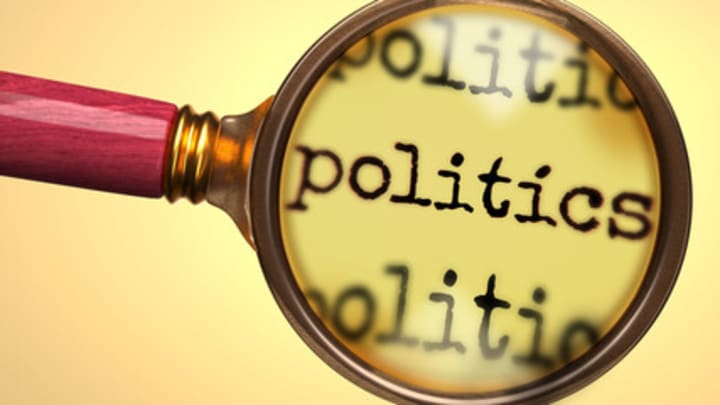The Ultimate Contender: How Money Is Power in Action
Money and power have been interlinked throughout history, creating a complex relationship that has shaped the course of human societies. From ancient civilizations to modern-day democracies, wealth has played a significant role in determining who holds power and how it is wielded. This article explores the dynamic between money and power, examining the historical, political, corporate, and personal dimensions of this relationship.

Money and power have been interlinked throughout history, creating a complex relationship that has shaped the course of human societies. From ancient civilizations to modern-day democracies, wealth has played a significant role in determining who holds power and how it is wielded. This article explores the dynamic between money and power, examining the historical, political, corporate, and personal dimensions of this relationship. We will also consider emerging trends and possibilities for the future, and the ongoing debate about the merits and drawbacks of this connection. Ultimately, this article aims to provide a comprehensive exploration of how money is power in action.
Introduction: The Link Between Money and Power
Money and power are two concepts that are inextricably linked. While money is often seen as a means to an end, that end is frequently the attainment of power. Whether it's in politics, business, or other areas of life, having more money often leads to increased influence and control over others. Understanding this relationship is crucial to understanding how our society operates and how we can navigate it successfully.
Defining Money and Power

Money, of course, is a medium of exchange that allows us to buy goods and services. Power, on the other hand, is the ability to influence or control others. While there are many different types of power, including physical strength, intellectual prowess, and social capital, money is perhaps the most potent source of power in modern society. It can be used to influence political decisions, sway public opinion, and shape the course of history.
The Importance of Understanding the Relationship Between Money and Power
The relationship between money and power is complex and multifaceted. In order to understand how they interact, we need to look at history, politics, and economics. By understanding the ways in which wealth can be used to gain power, we can better comprehend the forces that shape our society. This knowledge can help us to make informed decisions and advocate for change in areas where we see injustice or inequality.
The Historical Relationship between Money and Power
The Origins of Money and Power

The relationship between money and power goes back as far as human history can be traced. In ancient societies, those who possessed land or livestock had more power than those who did not. With the advent of coinage, the relationship between money and power became more formalized. Kings and emperors used their control over the money supply to maintain their authority and expand their empires.
The Evolution of Money and Power Through History
As societies became more complex, so too did the ways in which money could be used to gain power. The rise of capitalism in the modern era allowed for a new class of wealthy industrialists to gain unprecedented power and influence. In the twentieth century, the growth of multinational corporations and the rise of financial capitalism gave rise to a new form of global economic power.
The Role of Money in Politics and Government
The Influence of Money in Electoral Politics

Money plays a significant role in the American electoral process. Wealthy donors can contribute large sums of money to political candidates, allowing them to fund expensive advertising campaigns and hire influential lobbyists. This has led to concerns about the influence of money on the democratic process and the potential for corruption.
The Impact of Lobbying and Campaign Financing on Government Dynamics
Lobbyists also play a key role in the political system, using their wealth and influence to persuade lawmakers to support their clients' interests. This has led to concerns about the influence of special interests on policymaking and the potential for undue influence on the democratic process. Campaign financing laws have been enacted to limit the influence of money in politics, but these laws are often circumvented by wealthy donors and interest groups.
The Influence of Money on Corporate and Organizational Power
The Relationship Between Corporate Power and Wealth
In the business world, money is a key source of power. Corporations that generate substantial profits can use their wealth to expand their influence over markets, regulators, and public opinion. The rise of shareholder capitalism has focused corporate decision-making on maximizing shareholder value, often at the expense of workers, communities, and the environment.
The Role of Money in Shaping Organizational Culture and Decision-Making
Organizational culture and decision-making can also be heavily influenced by money. Companies that prioritize profits over other values may engage in unethical or illegal behavior in order to maintain their bottom line. Similarly, organizations that rely on wealthy donors may be more inclined to prioritize their interests over those of their constituents. Understanding the role of money in organizational dynamics is crucial to developing strategies for promoting ethical and responsible behavior.
The Impact of Money on Personal Power and Success
Money has long been equated to power and success in society. From a young age, we are taught that achieving financial stability and accumulating wealth means attaining a higher social status and increased personal power. This connection between wealth and social status is deeply ingrained in our culture and has a significant impact on how we view ourselves and others.
The Connection Between Wealth and Social Status
The link between wealth and social status is undeniable. Those with more money are often viewed as more successful, prestigious, and influential than those with less. This perception is reinforced by media and popular culture, which often celebrate the lifestyles of the rich and famous. It's no wonder that people strive to achieve financial success in order to attain a higher social status and more personal power.
The Psychological and Societal Effects of Money on Personal Power
The psychological and societal effects of money on personal power are complex and far-reaching. Studies have shown that people with higher incomes tend to have greater feelings of control and confidence, while those with lower incomes report higher levels of stress and anxiety. Additionally, the pursuit of wealth can lead to a sense of isolation and disconnection from others, as people focus more on material possessions and less on relationships and community.
The Future of Money and Power: Emerging Trends and Possibilities
As technology and globalization continue to shape the world, the relationship between money and power is evolving. New trends and possibilities are emerging that will shape the future of personal power and how we view wealth in society.
The Impact of Technology on the Relationship Between Money and Power
Technology has opened up new avenues for wealth creation and increased personal power. With the rise of the gig economy and online marketplaces, anyone can become an entrepreneur and achieve financial success. However, technology has also widened the gap between the haves and have-nots, as those with the skills and resources to navigate the digital world are often the ones who reap the rewards.
The Role of Globalization and Economic Systems in Shaping the Future of Money and Power
Globalization and economic systems play a significant role in shaping the future of money and power. As countries become more interconnected, wealth and power become more concentrated in the hands of a few global elites. At the same time, new economic models and movements are emerging that prioritize sustainability, community-driven solutions, and social responsibility.
Conclusion: The Ongoing Debate about Money and Power

The relationship between money and power has been debated for centuries, and the conversation shows no signs of slowing down. There are pros and cons to the link between wealth and personal power, and understanding this relationship is crucial for navigating the complexities of modern society.
The Pros and Cons of the Link Between Money and Power
On the one hand, money provides a sense of security and freedom to pursue one's goals and passions. It affords opportunities and access to resources that can lead to personal and professional success. On the other hand, the pursuit of wealth can also be isolating and contribute to a sense of moral ambiguity, as people prioritize their own interests over those of others.
The Implications of Understanding the Relationship Between Money and Power
Understanding the relationship between money and power is essential for creating a more equitable and just society. By recognizing the societal and psychological effects of wealth, we can work towards creating systems that prioritize community, sustainability, and fairness. At the same time, we can also strive to create personal empowerment and fulfillment that isn't solely tied to financial success. The relationship between money and power continues to be a topic of discussion and debate. While some argue that wealth is necessary for the exercise of power, others argue that it undermines democracy and equality. Regardless of one's position, there is no denying the undeniable link between money and power. As we move forward, it is important to continue examining this relationship and its impact on society, in order to create a future where power is more equitably distributed and accessible to all.
About the Creator
Krishna raj
"If your dreams don't scare you, they're too SMALL"






Comments
There are no comments for this story
Be the first to respond and start the conversation.